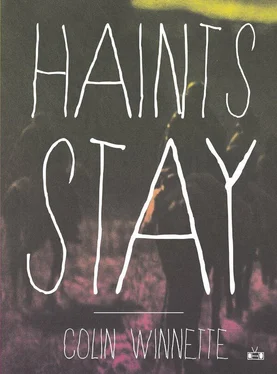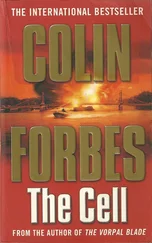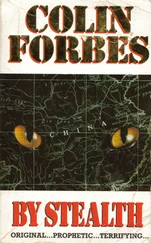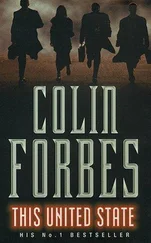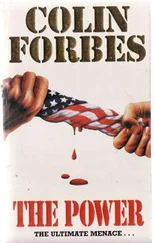“She’s just out of sorts,” said the woman applying the paste. “She needs to rest and eat. You can ride with us as far as you like. From what she’s told us, you can handle providing sustenance for the two of you.”
Brooke nodded. “As long as we stay by the stream. And as long as it doesn’t start snowing again.”
“Wasn’t that something?” said the girl holding her hand. She was younger, by fifty years or so. A granddaughter, maybe.
“It was not easy going,” said the woman applying the paste. “I imagine it was particularly difficult for the two of you, out here alone as you were.”
Brooke nodded.
“She says you’ve been wandering for some time?”
Brooke nodded.
“My guess is that you’re not opposed to joining up with us?”
“We could use your medical help. A few days off of our feet,” said Brooke.
“Most of us walk,” said the woman applying the paste. “Alongside or behind the wagons. The more the horses have to carry, the more often we have to stop, and the greater the risk of exhausting them or losing them to injury. She’ll have to rest here for a while, but you’ll have to do your part.”
Brooke nodded.
“I can manage that,” he said.
“It is a nice surprise to meet new people,” said the girl holding her hand. “We’ve been walking for so long, and my brothers really aren’t much for company.”
Brooke nodded.
“Do you and your wife have a family looking for you?” said the older woman. She set down the bowl and began to blow on the sick woman’s pasted lips.
“I have a brother,” he said. “But I have not seen him for some time. I do not know what’s become of him.”
“I’m sorry to hear that,” said the girl holding her hand.
Brooke nodded.
A shout from Wendell set the horses to a steady pace, and the other travelers fell in line alongside the wagon train. Brooke lowered himself from the wagon as it startled into motion, and told the women he would be back later to check on his wife.
Then they walked. The man introduced as Marston led three ponies at the rear of the wagon train. He was not skilled at moving them. They gave him great grief, and he tugged their reins and poked at their muzzles with a thin switch. Brooke took pace to the right of the third wagon, nearest the back. None in the party seemed concerned with him. None spoke to one another, or sang any songs.
When they stopped, for water or for rest, he checked on his wife. She was on the edge of sleep for nearly two days, never fully in or out. She spoke to him, but he could not make sense of it. She told him that the earth had begged her for the child. That the earth had told her it wasn’t hers and she could not care for it. She had wanted to help the child, she assured him. She had set out to perform good. She was losing her mind as his was slowly coming back to him. His memories faded, his reflections on all he had done before and how it had led him here. He was more and more simply there. He watched the female members of the wagon train. He had many ideas about them, but kept them all to himself. One was either slow-witted, or had a damaged speech capacity. She spoke at a slant, from the corner of her mouth. She did not say much, but when she did, it was about the wind, or about her clothing. She chased down a rag as it was drawn several hundred feet from the caravan by the wind. She clutched it to her body. So far off, she looked like a scraggly tree. Wendell fired a shot into the air, which startled her and brought her running back toward them. Another woman, her sister or cousin, wore muddy clothes and often spoke with Wendell privately, in hushed tones. It was Brooke’s assumption that these two had conspired to mobilize the family. They seemed to carry the weight of the trip. They made the decisions for when to stop and when to go, when to set up camp. Brooke’s best guess was that the woman was Wendell’s daughter. She seemed roughly twenty-five years his younger, and there was nothing in their body language to suggest they were intimate.
The woman caring for Brooke’s wife introduced herself as Wendell’s sister. They’d made camp after several hours of slowly working their way back in the direction from which Brooke had first started out. They were headed back to the corpses of the men who had captured him, the stagecoach that had once been his transport.
Marston pulled a crate of rocks from the back of one wagon and arranged them into a circle for the fire pit. He dug a shallow hole, spitting and cursing as he did. He was thin and not well suited to the work.
“My name is Irene,” said Wendell’s sister. She offered Brooke a sip of water from a thin aluminum saucer.
Brooke accepted, but took only enough to show he appreciated the offering.
“John,” said Brooke.
“Right,” said Irene. “How long have you and your wife been on foot?”
Brooke shrugged. “The only honest answer is that I lost count.”
“Where are you headed?”
“My wife and I,” said Brooke, “we lost a child not too long ago.”
“I know,” said Irene. “She’s said as much.”
“She has been wandering ever since, and I have been following her. At first, I tried to stop her, but she would not be stopped.”
Irene nodded.
“Dorothy lost hers,” she said. She gestured to the woman who spoke at a slant. “Some six years ago, maybe? It was born dead.”
Brooke nodded.
“She is lucky to have survived,” said Brooke. “I’ve seen a stillborn do much more damage.”
“We are lucky,” said Irene. “I’m not sure what she is.”
“We won’t be any trouble to you all,” said Brooke.
“I know,” said Irene.
“We appreciate your help. We’ll uncouple ourselves from you at the first town we come to, if you like. I think my wife needs a bed and a good meal. Maybe we’ll find a small place to call our own. We had a ranch once, but we cannot go back there.”
Irene nodded.
“Haints stay where and as they please,” she said.
Because of the snow, the creek was enormous now and moving quickly. There was less food to be found, but there was still food to be found. When they slept, they tied the horses together and blocked the wagon’s wheels. Many of them chose to sleep outside, beneath the stars. Wendell and his sister took to one of the wagons. Brooke slept in the third wagon, beside the woman he met in the snow. She spoke throughout the night, every so often. Some bit of nonsense or another. She took no notice of him. He listened to her for some time before he began to respond.
“I was told to do as I did,” she said.
“By the earth,” he said.
“I could feel I’d done wrong as soon as I did it.”
“I know that feeling,” said Brooke. “I have felt it often.”
“It would not stop screaming,” she said.
“It goes away,” said Brooke.
“Until I put it down, it would not stop.”
“But then it stopped,” said Brooke.
She began to cry then.
“Then it stopped,” she said.
The bodies were water-logged and delicate. Bird lifted the arm of a young man and the skin shifted, the body cracked as if Bird could tear loose the limb without much more than a tug. He dropped the arm and retreated to Mary where she stood on the porch, her hands over her eyes, still speaking out in protest.
“You must stop,” she said.
“We cannot move them,” he said.
“You should not,” she said.
“It would be impossible,” said Bird. “They are too full of water and too far gone. We cannot move them.”
“We have to leave,” said Mary.
Finally, Bird agreed.
Mary spent the evening preparing food for the journey: baking loaves of bread and gathering butter, salt, and cured meat into manageable sacks to be carried on their backs. Bird checked the houses again and found more bullets, another pistol, rotten meal, and some more jerky. The houses groaned as he moved through them. They were each tilted on their foundation, sagging and heavy with water. The roofs of several had already collapsed. He moved through them, navigating the rubble. They were lit cleanly by the blue sky above. He found two more bodies. Two children huddled in a basement. He covered them with blankets from a nearby dresser. He did not mention them to Mary.
Читать дальше
